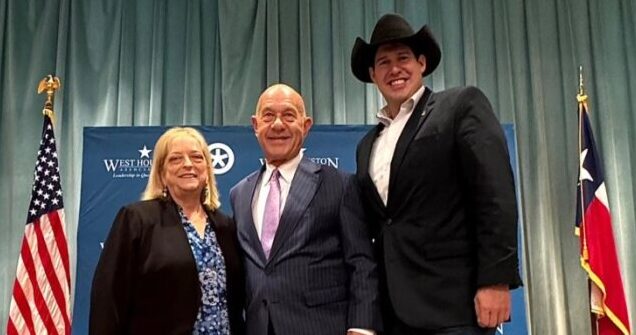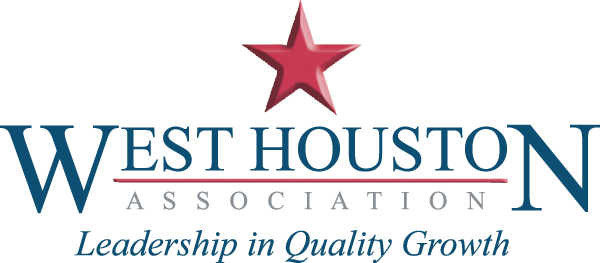On Thursday, March 28th, 2024, the West Houston Association held a fireside chat with Houston Mayor John Whitmire, titled the First 100 Days & the Years Ahead. The talk was moderated by Lisa Clark (W Land Development) and covered the mayor’s work in his first 87 days in office. Speaking to the nearly 200 attendees, he also addressed his plans for the City of Houston moving forward.
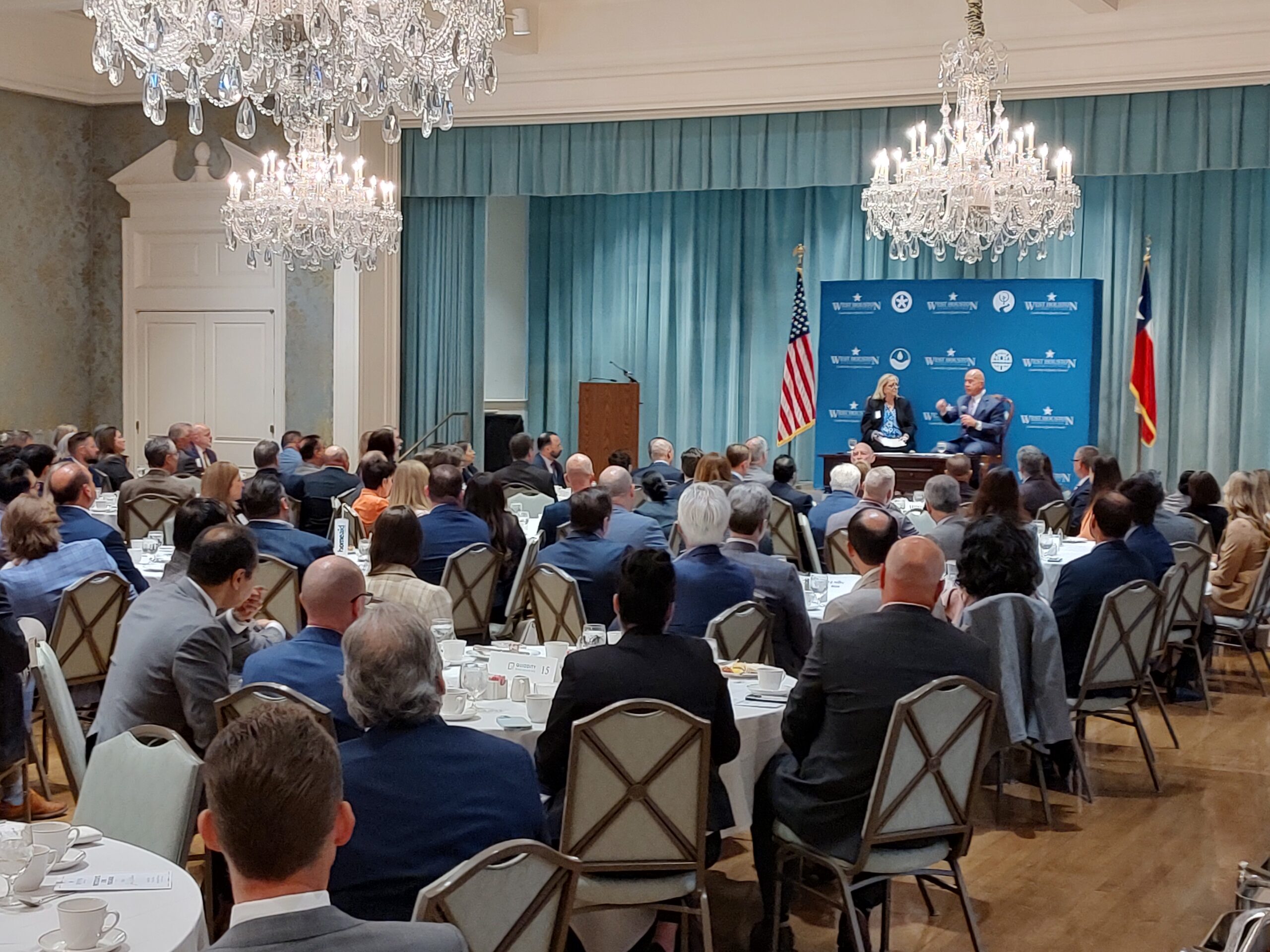
Alan Steinberg, President & CEO of WHA, opened the conversation by speaking to the theme of the event – “Leadership in Quality Growth – and sharing the same vision of a region where quality development, sustainable infrastructure, and sound public policy converge seamlessly. He also highlighted how events like this bring members of the public and private sectors together for collaboration. Steinberg then welcomed moderator and WHA Board Member, Lisa Clark to the stage.
Clark is Senior Vice President of Master Planned Communities at W Land Development and has served on the City of Houston Planning Commission for over 12 years and across three Mayors. She began by introducing Mayor Whitmire and recognizing him for his years of service in the Texas Legislature, including Dean of the Texas Senate. Shortly after taking the stage, the mayor started talking through how the City of Houston intends to collaborate with Harris County and the State. He stated changes were already being made and how his experience working across the aisle has led him to focus on more concrete action – emphasizing he “just wants to get things done.” The mayor says the key was transparent communication and impressed a message of unity, stating, “We’ve got to practice our unity, and get away from partisan politics. We’re all in this together.” Whitmire also acknowledged the challenges that the city faces, like budget limitations, aging infrastructure, and issues with the sanitation system. He remarked that they are still in a transitional period, but they are keeping a “can-do attitude” to get things done. 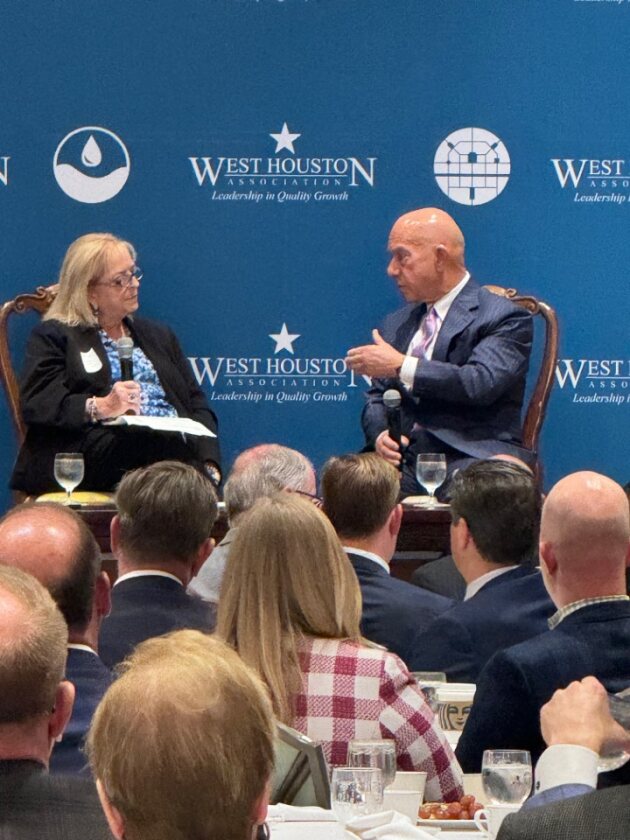
The conversation then shifted to a extra-territorial jurisdiction (ETJ) and SB-2038 which allows landowners to petition the city to have their property removed from an ETJ. Clark asked Whitmire his thoughts and plans to incentivize landowners to remain in Houston’s ETJ. He responded by saying his plan is to be honest with them and ask them to keep an open mind, because ETJ can play a vital role in planning and infrastructure. It can be sensible to work with an ETJ for cross-county issues like flooding. He then explained the need for a major city initiative in the Texas Legislature. “With the State’s help,” he said, “the City of Houston can better address issues like infrastructure and water supply, which need to be dealt with proactively.” He also touched on the ways he’s working with different entities such as the Houston Police Department to address suspended cases, and TIRZs and Management Districts to focus on economic development.
Clark kept the topic on infrastructure for the next few questions. The first was about drainage tunnel systems, like the Harris County Flood Control District’s (HCFCD) multi-tunnel plan, and the proposed tunnel from the reservoirs to the ship channel. The mayor noted that discussions about these were still in the preliminary stages, and that there are lots of challenges such as cost and property rights. He expressed that he wants to work with the county on how we can do more when it comes to maintaining flood control systems and added that this includes cleaning out neighborhood ditches and addressing illegal dumping.
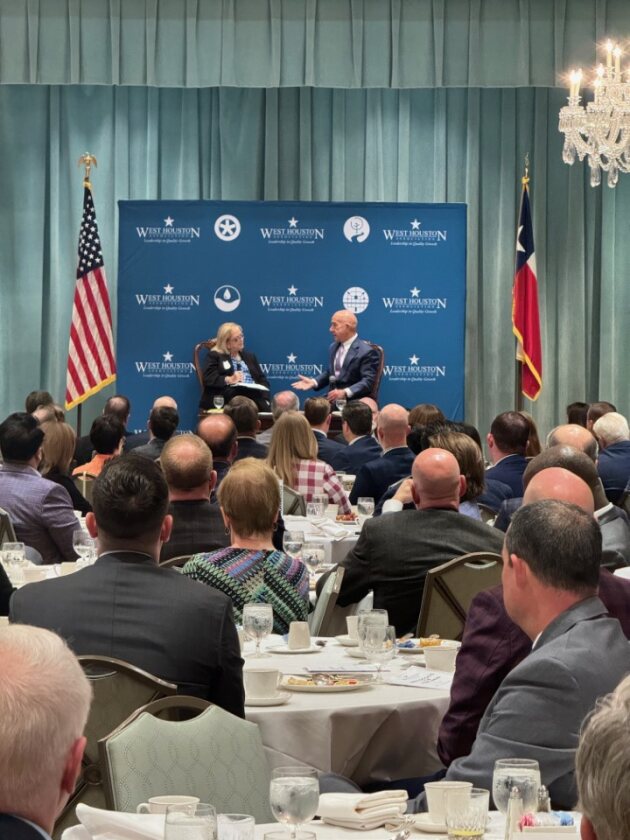
The second question was on the mayor’s plan to bring Houston’s aging wastewater system up to date, considering that the city is subject to an EPA consent decree to replace the current system. Whitmire stated that, “You can’t fix anything if you don’t acknowledge that it’s broken” and added that the consent decree helped them address what was wrong. The mayor stated that he planned to transform public works, and they are currently in transition as they get the right team in place.
Regarding sustainable infrastructure, Clark asked for the mayor’s thoughts on the Resilient Houston plan and how the administration might implement it. The mayor discussed how everyone cares about resiliency but may have different ideas of what it means or how to implement it. For Whitmire, resilience is about things like infrastructure, mobility, flood control, and safety. When addressing these areas, he resolved to listen to Houstonians, stating that, “Every community in Houston has a place at the table.”
Similarly, when Clark asked about Whitmire’s plans for upgrading our mobility infrastructure, and he responded that he respects the diversity of viewpoints that his constituents offer, and his priority is to let the residents decide what mobility infrastructure they need the most for their area, including making sure they can get to work and school easily. He went on to cover the ways that the city is currently working with METRO on several projects with an emphasis on safety and reliability, and his collaborative efforts with TxDOT, the County, and different TIRZs and management districts to work on mobility infrastructure while ensuring cost effectiveness. He also touted the benefits of the expansion of I-45, and Harris County’s plan to bring the Hardy Toll Road all the way to central Houston.
Clark ended the discussion with one last question, asking what we can do to work with the mayor to help ensure a high quality of life for all of us in the region. He replied that all he needs is goodwill and support – from constituents, elected officials, and organizations like WHA – for his ideas and proposals. He asked that we help him work on behalf of Houston. He wrapped up his thoughts by reiterating how passionate he is about his work, and that his decisions come from his years of experience, and from listening to the neighborhood. He told the room that, “How Houston goes, and our region, is how the state of Texas will go. And then we all know that how Texas goes is how the nation will go.”
Thank you to Lisa Clark and Mayor John Whitmire for leading this discussion about the future of the greater Houston area. A warm thank you to our sponsors for making this event possible.
